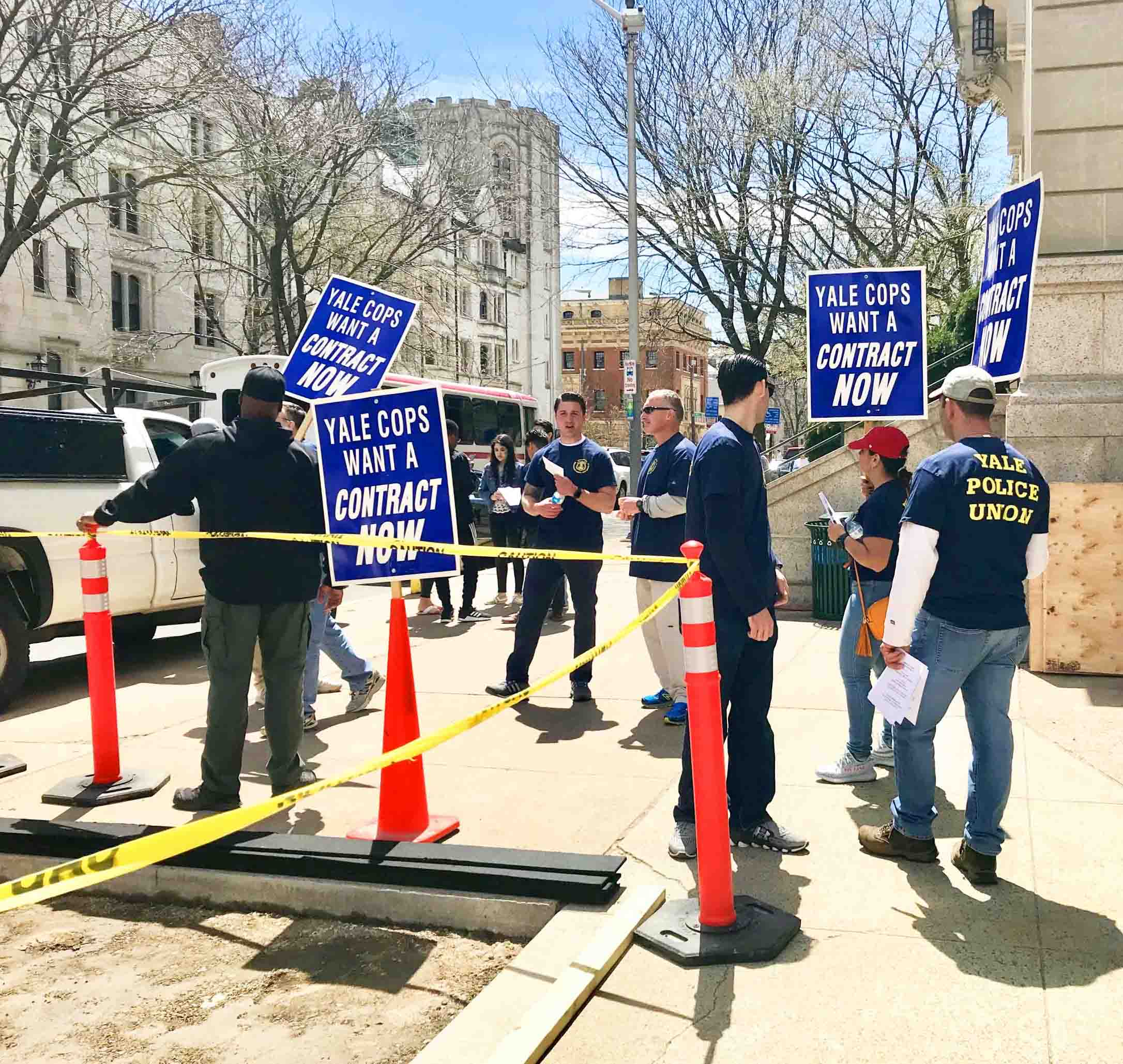
As the deadlocked contract talks between Yale’s police union and the University continue into a third year, negotiators for the union and the University are meeting this week to discuss a disagreement over health care benefits for retirees.
The Yale Police Department’s union — the Yale Police Benevolent Association — presented a proposal to Yale on Aug. 28, before another round of negotiations begin Tuesday. Since June 2016, the union has renewed its old contract with Yale on a month-to-month basis as negotiations have dragged on. With talks continuing, the union is threatening to take “job action” — potentially including a strike — if the negotiations don’t lead to an agreement.
The union and the University have already agreed on noneconomic, operational stipulations that govern the police force. But union negotiators are still seeking improvements in the health care benefits offered to police retirees. If the University and the union do not reach an agreement, the union will take “job action,” which in its most “extreme” form would be a strike, YPD officer John Grottole, one of the union’s lead negotiators, told the News late last week.
“We all know that this is where the rubber meets the road,” Grottole said.
Yale spokesman Tom Conroy said the University is continuing to meet with the union and that he does not have any specifics to offer at this time.
Although there are still lingering questions about wages and other issues, retiree health care remains the “real, potentially contentious issue,” Grottole said.
At the moment, the University provides police department retirees two primary health care benefits, according to Grottole. First, after retiring, former department employees receive premium-free health care until they are eligible for Medicare at age 65; and second, the University reimburses retirees aged 65 and older for Medicare Part B costs, which amount to a monthly charge of $135 apiece for the retiree and his or her spouse, Grottole said.
In the negotiations, Grottole said, Yale has proposed making retired officers under the age of 65 pay the same premiums shouldered by current employees. The new proposal also does not include the Medicare Part B reimbursements, he added.
In compensation for giving up these benefits, the Yale Police Benevolent Association is demanding pension enhancements that would offset some of the costs that retired officers would incur.
“If they refuse to either withdraw the proposals on these two things, or compensate us with pension improvements, then the contract will get cancelled and there will be job actions,” Grottole said. He added that “job actions” could mean many things — and that the most extreme action the union could take would be a strike.
Of the 93 members of the Yale Police Department, 71 — every patrol officer and detective — are bargaining unit members, Grottole said.
In a pamphlet titled “Critical Information” handed out to all Yale Police Benevolent Association members this week, Simons detailed how both premium-free retiree health insurance and reimbursement for Medicare Part B are the union’s “most valuable benefits, which will be critical to [them] when [they] retire.”
The “retirement benefits are PRICELESS. WE SIMPLY CANNOT GIVE THEM BACK TO YALE AND GET NOTHING IN RETURN,” the pamphlet stated.
The Yale Police Department was established in 1894.
Sammy Westfall | sammy.westfall@yale.edu







